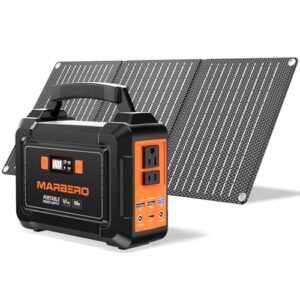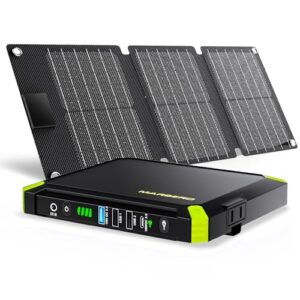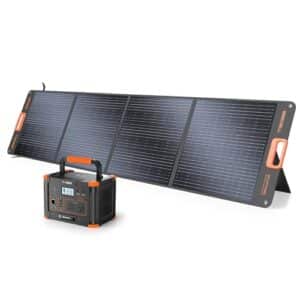Solar panels: AC or DC output?
Key Takeaways
- AC output solar panels are directly compatible with the AC grid, simplifying installation and reducing the need for additional equipment.
- AC output solar panels are more effective for power transfer in larger installations or situations where the solar array is located far from the point of consumption.
- DC output solar panels tend to be slightly more efficient compared to AC output panels and are generally less expensive, making them attractive for smaller-scale installations or off-grid applications.
When it comes to choosing solar panels for your home or business, one important consideration is whether to opt for AC (alternating current) or DC (direct current) output. While both options have their advantages and disadvantages, it’s important to understand the key differences between the two to make an informed decision. In this article, we will explore the advantages of AC and DC solar panels, as well as their applications and compatibility with existing infrastructure.
Advantages of AC Output Solar Panels
AC output solar panels offer several advantages over their DC counterparts. Let’s take a closer look at some of the key benefits:
- Compatibility with the AC Grid: AC solar panels are directly compatible with the AC grid, making them easier to connect to the existing grid infrastructure. This compatibility simplifies the installation process and reduces the need for additional equipment.
- Efficient Transmission: AC voltage is better suited for long-distance electricity transmission, as it experiences less voltage drop over distance. This means that AC output solar panels are more effective for power transfer in larger installations or situations where the solar array is located far from the point of consumption.
- Versatility in Household Applications: AC-integrated solar panels are a versatile source of power for home appliances and can be used in diverse residential and commercial electrical systems. This versatility allows for seamless integration into existing electrical setups without significant modifications.
- Safety Measures and Lower Risk of Electrocution: AC solar panel systems offer enhanced safety features and a lower risk of electrocution. The use of AC power reduces the potential for electrical shocks, making them a safer option for both installers and end-users.
- Ease of Voltage Conversion: AC solar panels with microinverters offer easy voltage conversion, allowing the power level to be adjusted to match specific requirements. This simplifies the overall performance of the solar panel system and optimizes energy production.
Advantages of DC Output Solar Panels
While AC output solar panels have their advantages, DC output solar panels also offer unique benefits. Here are a few advantages of DC output:
- Higher Efficiency: DC output solar panels tend to be slightly more efficient compared to AC output panels. DC power generated by the panels can be directly used by DC appliances or stored in DC batteries, minimizing energy losses during the conversion process.
- Cost-Effectiveness: DC output solar panels are generally less expensive compared to AC output panels. This cost advantage can make them an attractive option for smaller-scale installations or off-grid applications where the power generated doesn’t need to be fed into the AC grid.
- Modularity: DC output solar panels can be easily expanded or added to an existing solar system. This modularity allows for flexibility in system design and future scalability.
Conclusion
When it comes to choosing between AC and DC output solar panels, it ultimately depends on your specific needs and circumstances. AC output panels offer ease of installation, compatibility with existing infrastructure, and efficient transmission over long distances. On the other hand, DC output panels are known for their higher efficiency, cost-effectiveness, and modularity.
Before making a decision, it’s important to assess factors such as your energy consumption patterns, available space, budget, and whether you plan to connect to the AC grid. Consulting with a solar professional can also provide valuable insights and help you determine the best solution for your unique requirements.
Related Websites:
- Solar Fundamentals: What’s the Difference Between AC vs DC? – Aurora Solar
- Better Solar: DC or AC? – Novergy Solar
- Solar Fundamentals: What’s the Difference Between AC vs DC? – Freyr Energy
- AC vs DC Solar Panels – Sunvival Guide
- AC and DC Losses in Solar Power Systems – Solar Tech Advisor
- Solar Panel Output – This Old House
FAQs:
Q: What are the benefits of using AC output for solar panels?
AC output is compatible with existing electrical systems, allowing for easy integration. It can power standard household appliances and offers flexibility in connecting to the grid.
Q: What advantages does DC output offer for solar panels?
DC output is efficient in energy conversion, resulting in higher overall system efficiency. It allows for a direct connection to battery storage systems and is particularly useful in remote or off-grid applications.
Q: What factors should I consider when choosing between AC and DC output for solar panels?
Consider your energy consumption patterns, as well as the cost implications of each option. Additionally, evaluate the available equipment and infrastructure to determine compatibility.
Q: Why is it important to understand AC and DC output for solar panels?
Understanding AC and DC output is crucial to ensure efficient energy usage and proper integration with existing electrical systems. It allows you to make informed decisions to meet your specific needs.
Q: Where can I find professional advice on choosing the right output for my solar panels?
It is recommended to consult professionals in the field of solar energy or electrical systems. They can provide personalized advice based on your specific requirements and help you make an informed decision.






